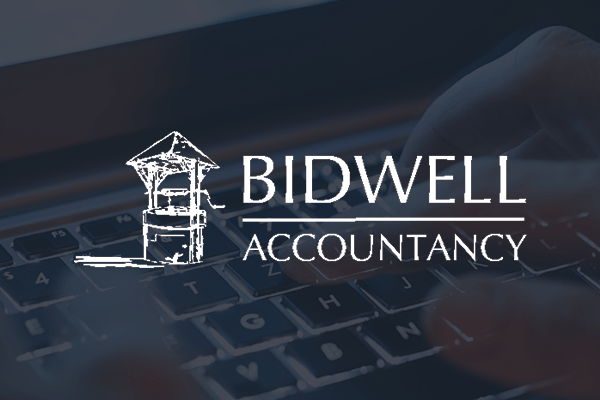Newsletter - May 2021
2020-2021 Self-Assessment Tax Returns
We are now completing 2020-2021 self-assessment tax returns for our clients. If you wish us to complete your tax return, then please contact us on (01908) 380391 or e-mail info@bidwellaccountancy.com.
You have until the 31st January 2022 to complete your tax return but there are a number of reason to get your tax return submitted early
· It will give you time to save for your tax bill.
o Although tax return is submitted early you won’t actually have to pay your tax liability until the 31st January 2022.
· You’ll avoid penalties.
o A £100 instant fine if you miss the January 31st deadline
o £10-per-day fines (for up to 90 days) if you haven’t filed by 30th April
o A £300 fine (or 5% of the tax you owe – whichever is greater) if you still haven’t filed after another 90 days
o Another £300 fine (or 5% of the tax you owe – whichever is greater) if you still haven’t filed within a year
o Additional penalties – including up to 100% of owed tax – if HMRC believes you are intentionally delaying your filing.
· HMRC call centres are always overwhelmed in January
o HMRC are already stretched due to the pandemic with many of their workers working from home.
o In January 2021 the average waiting time to get through to an operator was over 14 minutes.
· It might not all be bad news
o You might actually be due a refund from HMRC if you have overpaid your taxes for the 2020-2021 tax year.
o If you have a second payment on account due by the 31st July 2021 then we might actually be able to lower this payment for you.
Recently self-employed?
If you became self-employed after 5 April 2019 and you have submitted your 2019-20 tax return before 2 March 2021, you may be eligible for the next two Self-Employed Income Support Scheme (SEISS) grants for the quarter end 30 April 2021 and the final claims period to 30 September 2021.
HMRC has announced that they are adding a new layer of security to these SEISS claims and will be calling taxpayers to verify their identity. The announcement on the GOV.UK website says:
From March to April 2021 HMRC will write to customers who became self-employed in 2019-20 and submitted a self-assessment return for that period.
As a result of the Chancellor’s announcement that the fourth Self Employment Income Support Scheme (SEISS) grant will take into account the 2019-20 tax returns, these customers may be eligible for support under SEISS.
The letter will tell customers to expect a telephone call on the number they provided on their tax return.
If the customer provided an agent’s number on their return, we will ask the agent to pass on the customer’s number as we need to speak to the customer directly.
When we call, we’ll ask for proof of identity and evidence of trade in the form of bank statements.
We are aware of increased scam activity related to HMRC’s coronavirus support schemes. The purpose of this letter is to explain to customers that this is a genuine call, and to give customers details on how to recognise it as such.
SEISS Grants
Did you receive SEISS Grants in the 2020-2021 tax year?
The grants were put in place to help people whose income was affected by the Coronavirus pandemic.
If your income wasn’t affected in the 2020-2021 tax year and you claimed a SEISS Grant which you weren’t entitled to receive then you may receive a penalty from HMRC.
HMRC released guidance on this on 30th April 2021. You can find the full details below.
https://www.bidwellaccountancy.com/hmrc-seiss-grants
Temporary extension of loss relief carry-backs
Many businesses across the UK are likely to make losses in the 2020-21 tax year due to the havoc resulting from COVID disruption.
Which was why the announcement in the recent Budget that losses can be carried back for an extended period was most welcome.
The policy objective aims to provide a cashflow benefit to affected businesses by providing additional relief for trading losses, thereby generating repayments for tax paid for two additional years.
Legislation will be introduced in Finance Bill 2021 to extend the period for which trading losses can be carried back against previous profits. This extension will apply to trading losses made by companies in accounting periods ending between 1 April 2020 and 31 March 2022 and to trading losses made by unincorporated
businesses in tax years 2020-21 and 2021-22.
To facilitate this change, trade losses carry back will be extended from the current one year entitlement to a period of three years, with losses being carried back against later years first.
Furlough scheme changes from 1 July 2021
The government has confirmed its intention that furloughed employees will be paid 80% of their wages for hours not worked under the furlough scheme.
Up to 30 June 2021, this payment will be fully-funded by government and capped at £2,500 per month.
From 1 July 2021, employers are required to contribute 10% of the 80% (capped at £312.50 per month) government contributing 70% of the 80% (capped at £2,187.50 per month).
From 1 August 2021, until the scheme is due to end 30 September 2021, employer contributions rise to 20% of the 80% (capped at £625 per month) government contributing 60% of the 80% (capped at £1,875 per month).
Readers are reminded that one of the conditions to apply for this support is that you can demonstrate that your business continues to be adversely affected by COVID disruption.
Throughout this period, employers are fully responsible for payment of any hours worked.
Small Business Brexit Support Fund
Since 15 March 2021, smaller businesses can apply for grants of up to £2,000 to help them adapt to new customs and tax rules when trading with the EU.
The £20 million SME Brexit Support Fund enables traders to access practical support, including training for new customs, rules of origin and VAT processes.
Small and medium sized businesses that trade solely with the EU - and are therefore new to importing and exporting processes - are encouraged to apply for the grants.
The fund, announced in February by the Chancellor of the Duchy of Lancaster, Michael Gove, is the latest round of government support for UK trade.
To be eligible, businesses must import or export goods between Great Britain and the EU or move goods between Great Britain and Northern Ireland.
This follows the government setting out a new timetable for introducing import border control processes to enable UK businesses to focus on their recovery. Full import border control processes will now be introduced on 1 January 2022, six months later than originally planned.
Tax Diary April/May 2021
1 April 2021 - Due date for Corporation Tax due for the year ended 30 June 2020.
19 April 2021 - PAYE and NIC deductions due for month ended 5 April 2021. (If you pay your tax electronically the due date is 22 April 2021)
19 April 2021 - Filing deadline for the CIS300 monthly return for the month ended 5 April 2021.
19 April 2021 - CIS tax deducted for the month ended 5 April 2021 is payable by today.
30 April 2021 - 2019-20 tax returns filed after this date will be subject to an additional £10 per day late filing penalty.
1 May 2021 - Due date for Corporation Tax due for the year ended 30 July 2020.
19 May 2021 - PAYE and NIC deductions due for month ended 5 May 2021. (If you pay your tax electronically the due date is 22 May 2021).
19 May 2021 - Filing deadline for the CIS300 monthly return for the month ended 5 May 2021.
19 May 2021 - CIS tax deducted for the month ended 5 May 2021 is payable by today.
31 May 2021 - Ensure all employees have been given their P60s for the 2020-21 tax year.

Unit 157, Milton Keynes Business Centre,
Foxhunter Drive, Milton Keynes,
Buckinghamshire, MK14 6GD
Bidwell Accountancy





